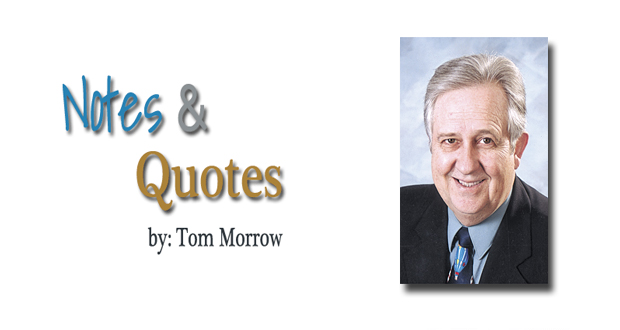The ‘Boys’ Who Covered World War II
By Tom Morrow
Few journalists have ever witnessed world history more closely than Edward R. Murrow and William L. Shirer. Together, they reported the horrors of World War II, before, during and after.
Murrow first gained prominence prior to World War II with a series of live radio broadcasts from Europe for the news division of CBS radio. Shirer was the first of the so called “Murrow’s Boys,” a team of CBS broadcast journalists who provided news coverage during World War II and many years afterward.

From 1937 until the end of 1940 Shirer covered the rise of Nazi Germany for CBS. He later wrote a successful 1941 memoir about those years, Berlin Diary. Today it is a must-read for students of World War II’s history.
At first, CBS prohibited correspondents from reporting first hand. That ended in March 1938 when Shirer was in Vienna. After weeks of mounting pressure by Nazi Germany on the Austrian government, German troops controlled Austrian state radio prohibiting Shirer’s broadcasts. Shirer flew to London where he broadcast the first uncensored eyewitness account of the Austrian annexation. The next day, CBS’s New York headquarters asked Shirer and Murrow to produce a European roundup, a 30-minute broadcast featuring live reporting. “The CBS World News Roundup” is still on the air each morning and evening, broadcasting’s oldest network news series.
Murrow became a popular nightly radio voice broadcasting from a rooftop in London as the city was being bombed by Nazi aircraft. The dramatic sounds of bombs bursting in the background during Murrow’s broadcasts brought the “Battle of Britain” to America.
As the CBS World News segment grew Murrow’s original “Boys” team became familiar to the American audience. The team included:
Eric Sevareid covered the 1940 fall of France and the London Blitz, later covering the war’s progress in Great Britain, Italy, and Germany.
Larry LeSueur covered the Battle of Britain “Blitz,” the Eastern Front, and key battles in France.
Charles Collingwood covered the North African campaign, and the liberation of France.
Richard C. Hottelet covered Allied progress in Great Britain, France, and Germany.
Howard K. Smith covered Germany and later reported from Switzerland and France.
Winston Burdett covered Eastern Europe, North Africa, and Italy.
Wire service reporter Walter Cronkite was invited to be one of “the Boys.” At first, he accepted the CBS offer, but when he informed the United Press he was leaving, Cronkite’s boss countered with a raise. He stayed at UP, which angered Murrow creating a riff that lasted for years.
Several “Boys” were assigned to accompany Allied forces on D-Day. Hottelet rode along in a bomber over Utah Beach during the initial phase of the invasion. Collingwood covered Utah Beach, as did Larry LeSueur from a separate landing craft. They had difficulty finding working mobile transmitters and no correspondents of any network were able to report live from Normandy until over a week after the initial landings.

During the War, the group maintained close ties with Murrow but not necessarily each other. They had significant autonomy in filing reports, and while they had been influential in developing the field of radio news broadcasting, later they were reluctant to make the transition to television. The “Murrow Boys” liked far more working in radio than in television. They resented the process of lights, cameras, makeup, and other aspects of TV broadcasting. By the 1950s their dominating presence in the field had begun to decline. Hottelet had the longest career at CBS, joining in 1944 and reported news until 1985.
A legendary dispute between Shirer and Murrow started in 1947 when the maker of shaving soap withdrew sponsorship from Shirer’s Sunday news show. Murrow, who was then vice president for public affairs, and CBS head William S. Paley, did not seek another sponsor. CBS stopped producing the show within a month. CBS always maintained Shirer resigned, but Shirer said he was essentially forced out.
The friendship between Shirer and Murrow never recovered. Shirer’s daughter, Inga, once described how Murrow, who was suffering from terminal lung cancer, tried to heal the breach by inviting Shirer and his wife to his farm in 1964. Murrow tried to discuss the breach, but Shirer steered the conversation away. They never had another opportunity to speak before Murrow’s death in 1965. Shirer’s daughter reported that shortly before her father’s death in 1993, he continued to rebuff attempts to learn the source of the breach that occurred some 45 years earlier. Shirer died Dec. 26, 1993, age 89.
The world history reported by Murrow and his ‘Boys’ has never been equaled in journalism, nor is it likely to ever be repeated.




